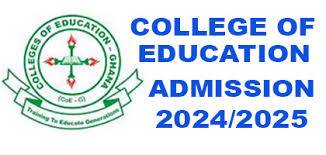Admission List Changes: Ghanaian Colleges Adopt New Approach for 2024 Intake
In a notable shift in the admission process for the 2024 academic year, colleges across Ghana have announced a major update that impacts how admission lists will be shared with prospective students. Presbyterian College of Education, Akropong - Akuapem, has spearheaded this communication with a clear message to applicants: the traditional posting of admission lists will not occur this year. Instead, successful applicants are those who receive their admission letters directly from the institutions. This change in protocol affects not only Presbyterian College of Education but extends to other colleges of education across the country.
A Shift in Tradition
In previous years, it was a common practice for colleges to publicly post admission lists either on notice boards or online platforms for all to view. This provided students an opportunity to verify whether they had been accepted into their institution of choice. However, this year’s decision reflects a broader shift, likely aimed at streamlining the admission process while also addressing concerns around transparency and data protection.
The decision has left many applicants with questions, as it deviates from the typical admission procedures. The announcement emphasizes that those who do not receive admission letters directly have not been admitted for the academic year. While the specifics behind this change have not been explicitly outlined by all colleges, it signals a significant move towards a more private and perhaps more efficient process of communicating admissions.
What This Means for Applicants
For students who have applied to colleges of education across the country, this update implies that the responsibility for following up on admissions now largely rests with the individual. Without the traditional publication of lists, students are being encouraged to visit their respective colleges for any further inquiries or clarifications regarding their admission status.
The clear instruction is that if you receive an admission letter, you are one of the successful applicants for the 2024 academic year. However, for those who have not yet received any communication, there may still be a chance to seek clarification from the college directly. Colleges are advising students to reach out to their admissions offices or visit the institutions for face-to-face inquiries if they are uncertain about their status.
This new process places importance on ensuring that applicants check their emails and other official communication channels regularly. It also emphasizes the need for students to be proactive in confirming their admission status, especially in cases where they are yet to receive any formal notification.
Potential Reasons for the Change
While the announcement itself does not go into detail about the reasons behind this decision, there are several possible factors that could have influenced the change:
1. Data Privacy Concerns: In an era where personal information needs to be protected more than ever, the decision to withhold publicly posted admission lists might be motivated by a desire to safeguard students’ personal data. Publicly displaying admission lists may expose students’ information to third parties, which could lead to privacy concerns.
2. Reducing Pressure on Applicants: The public posting of admission lists often leads to heightened pressure and anxiety among students and their families. By delivering admission letters privately, colleges may aim to reduce the public spectacle that accompanies this process, allowing for a more measured response from applicants.
3. Streamlining the Admission Process: Directly sending admission letters might be an effort to reduce administrative burdens associated with posting and updating lists. It could allow colleges to communicate more efficiently with their applicants and ensure that the process is handled smoothly.
4. Improving Communication with Successful Applicants: Delivering admission letters directly could also ensure that successful applicants are properly informed of the next steps they need to take, such as registration deadlines, fees, and orientation schedules. This direct line of communication could help avoid confusion or misinformation.
Advice for Prospective Students
Given the changes to the admission process, students applying to colleges across Ghana should take note of the following recommendations:
• Regularly Check Communication Channels: Ensure that you frequently check your email inboxes, including spam folders, for any admission letters or notifications from your chosen institution. You should also be on the lookout for any phone calls or text messages from the college administration.
• Visit the College for Clarification: If you believe there may be a mistake, or if you have not received an admission letter but feel you meet the eligibility criteria, it is important to visit the college in person. Speaking directly to the admissions office will provide you with the most accurate and up-to-date information.
• Prepare for Alternatives: For those who do not receive an admission letter, it’s essential to remain calm and consider alternative plans. Whether that means applying to different institutions or considering other educational or vocational opportunities, it is crucial to be prepared for all outcomes.
Conclusion
The 2024 academic year brings a new chapter for students entering colleges of education across Ghana. With this shift in how admission results are communicated, students and their families are encouraged to stay vigilant and proactive in confirming their admission status. As colleges embrace this new system, applicants must adapt by checking all communication channels regularly and visiting their institutions for any necessary follow-ups.
Ultimately, the goal remains the same: ensuring that successful students are admitted smoothly into their institutions so they can begin their academic journeys. While the process may be different, the hope is that it will lead to a more secure, efficient, and private system for all involved.




No comments yet
Be the first to share your thoughts!